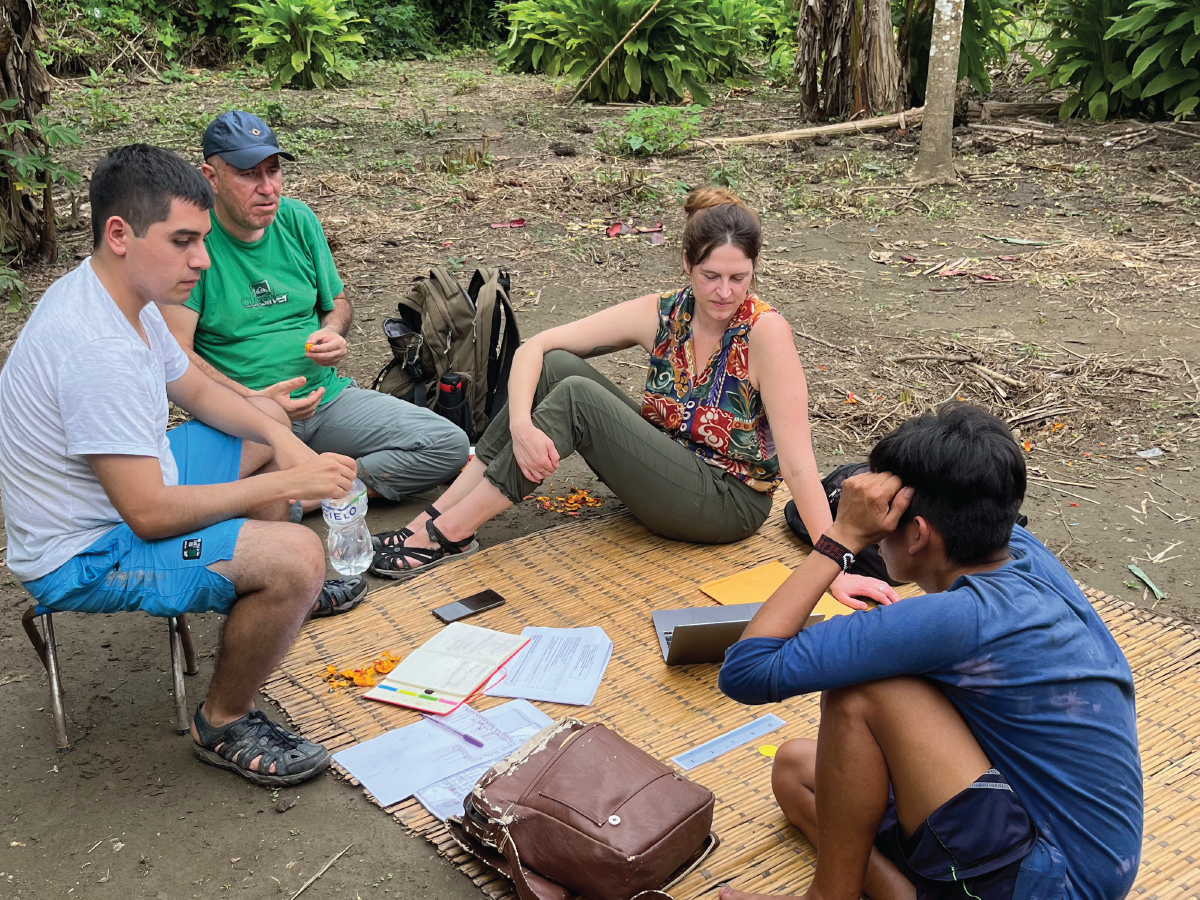Michigan State University and the Pontifical Catholic University of Peru receive grant to work with Indigenous Federations to improve cultural relevance and gender equality of forest conservation initiatives
New grant awarded to support a new collaborative project “Inclusive and Sustainable Conservation Partnerships: An applied approach for improving Peru’s market base mechanism strategies with Indigenous communities.”

Michigan State University and the Pontifical Catholic University of Peru receive grant to work with Indigenous Federations to improve cultural relevance and gender equality of forest conservation initiatives
The Forest Carbon and Climate Program (FCCP) of Michigan State University (MSU) and the Pontifical Catholic University of Peru (PUCP), were awarded a grant from the Tinker Foundation to support a new collaborative project “Inclusive and Sustainable Conservation Partnerships: An applied approach for improving Peru’s market base mechanism strategies with Indigenous communities.” The goal of the initiative is to improve forest conservation engagements with native communities in the following themes: Centering Community Planning, Strengthening the Indigenous Economy, and Advancing Gender Equality.
The project uses an Action Research framework, a form of research which aims to support practical problem solving and is done with as opposed to on members of the researched community. As such, MSU and PUCP will work directly with Indigenous federations, communities, and state officials to develop a series of pilot protocols, focused on the San Martín region of Peru. The process will co-create an implementation toolkit in partnership with the provincial Indigenous Coordinator of Development and Defense of the Indigenous Peoples of the San Martín Region (CODEPISAM) and Federation of Kechua Chazuta Amazonas Indigenous Peoples (FEPIKECHA). The team will test the practicality and effectiveness of the toolkit and demonstrate its impacts in three communities, incorporating revisions and improvements based on community feedback. The final tools will be presented to Peru’s Ministry of the Environment and made available for use by similar programs. A set of lessons learned from the collaborative process will be shared broadly with Indigenous organizations in the Latin American region and similar programs worldwide.
This new project stems directly from MSU and PUCP’s empirical findings from a 3-year study of Peru’s Conditional Direct Transfers (TDCs). TDCs are Peru’s state-led conservation mechanism, with over 10 years of implementation and enrollment of over 326 native communities for forest conservation incentives. The team’s previous research asked: How can the TDC be improved to achieve long-term conservation and development objectives with repeated engagements and scaling? Results produced 10 recommendations which reflect best practices for partnerships with Indigenous Peoples and other local communities. The recommendations are based on a statistical analysis of TDC outcomes between 2010 and 2020, observations in 8 communities, and more than 100 interviews with individuals in native communities, state offices, NGOs, and Indigenous federations.

The new project focuses on implementing three of the recommendations, which were prioritized by both Indigenous organizations and state officials in dissemination workshops. As such, the project supports benefits to both Indigenous communities and state programs with a protocol tool that will guide in developing budgets, clarifying legal processes, and instating monitoring and evaluation procedures with a focus on supporting gender equality, existing community priorities, and cultural assets. The three case study communities will also obtain specific and useful insights about their own cultural assets as part of the research process. The final tools will also support mainstreaming of Peru’s National Gender Policy.
The lead institution on the new project is Michigan State University (MSU), a land-grant University committed to engaging with international partners and harnessing the power of working together for better global outcomes. The in-country institution co-leading this project is Pontificia Universidad Católica del Perú (PUCP), a principal research and teaching University in Peru. The MSU-PUCP team is advised by Dr. Anne Larson and shares results and expertise with the Center for International Forestry Research (CIFOR). MSU has had a Memorandum of Understanding with the Peruvian Ministry of the Environment since 2020, and with Instituto de la Naturaleza, Tierra y Energía of PUCP since January of 2024. The project marks a new partnership with CODEPISAM and FEPIKECHA.
Researchers:
- Lauren Cooper (MSU Forestry)
- Rowenn Kalman (MSU Anthropology)
- Deborah Delgado Pugley (PUCP Sociology)
- Cristina Miranda Beas (PUCP Political Science and Government)
- Ciro Alexander Castro Pacheco (PUCP Sociology)
Links and resources
- Kalman, R., Cooper, L., Miranda, C., Delgado, D., Castro, C., and Larson. (2024). Making conservation incentives work for Indigenous Peoples and local communities Insights and recommendations from Peru. CIFOR.
- Bosques + Gente: A Peruvian collaboration bridging development and conservation.
- Red de Aprendizaje: Bosques, Carbono, y Clima de América Latina 2022-2023. Sesión 5.



 Print
Print Email
Email
